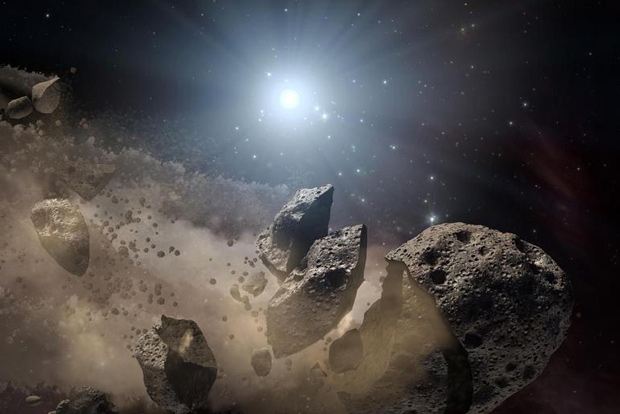Scientists at University of Hawaii Institute for Astronomy (IfA) in the US, have announced the detection of Yarkovsky acceleration on the near-Earth asteroid Apophis.
Dave Tholen and collaborators have announced the detection of Yarkovsky acceleration on the near-Earth asteroid Apophis. This acceleration arises from an extremely weak force on an object due to non-uniform thermal radiation. This force is particularly important for the asteroid Apophis, as it affects the probability of an Earth impact in 2068.
All asteroids need to reradiate as heat the energy they absorb from sunlight in order to maintain thermal equilibrium, a process that slightly changes the orbit of the asteroid. Prior to the detection of Yarkovsky acceleration on Apophis, astronomers had concluded that a potential impact with Earth in 2068 was impossible. The detection of this effect acting on Apophis means that the 2068 impact scenario is still a possibility.
Apophis is noteworthy because of its extremely close approach to the Earth on Friday, April 13, 2029, when the 300 meter-sized asteroid will become visible to the unaided eye as it passes within the belt of communications satellites orbiting the Earth.
“We have known for some time that an impact with Earth is not possible during the 2029 close approach,” said Tholen, who has been accurately tracking the motion of Apophis in the sky since his team discovered it in 2004. “The new observations we obtained with the Subaru telescope earlier this year were good enough to reveal the Yarkovsky acceleration of Apophis, and they show that the asteroid is drifting away from a purely gravitational orbit by about 170 meters per year, which is enough to keep the 2068 impact scenario in play.”
The orbit calculations were performed by Davide Farnocchia of the Jet Propulsion Laboratory, who is a co-author on the paper that was presented at the 2020 virtual meeting of the Division for Planetary Sciences of the American Astronomical Society.





























